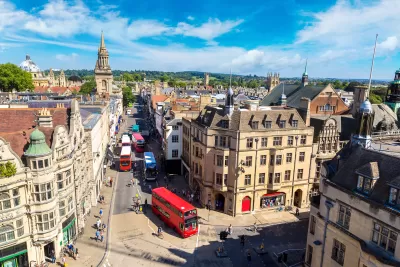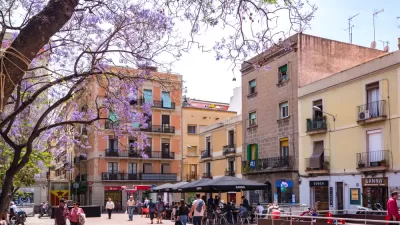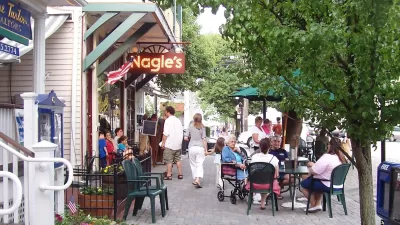‘Commonsense’ urbanism projects are being painted by opponents as sinister plots to limit movement and erode property rights.

The conspiracy mindset fueling many of today’s “culture wars” has finally come for urban planning ideas, writes Skip Descant in Governing.
Alex Roy, co-founder of mobility consultancy Johnson & Roy and a host on the Autonocast podcast, calls out a “concerted effort against new mobility,” conducted largely on Twitter, that has attacked seemingly innocuous concepts like the 15-minute city and new mobility.
For Roy, “That mobility in cities should become politicized in America should come as no huge surprise.” In fact, Roy says “In the history of mobility, ‘every mode that arrived became politicized. It became the darling of the left, or the right.’”
Descant acknowledges it’s “easy to dismiss the chatter on Twitter and conservative media as simply white noise,” but the belief in dark global conspiracies that seek to gut property rights and limit movement is dangerous to advancing solutions to urban problems. “Given the many challenges facing cities, ranging from changing commuter patterns brought on by the COVID-19 pandemic, shifts in how we shop, and how we work, the problems facing cities are real and will require solutions rather than growing political divisions.”
FULL STORY: ‘Culture Wars’ Break Out Over Public Transit, Urbanist Ideas

Planetizen Federal Action Tracker
A weekly monitor of how Trump’s orders and actions are impacting planners and planning in America.

Maui's Vacation Rental Debate Turns Ugly
Verbal attacks, misinformation campaigns and fistfights plague a high-stakes debate to convert thousands of vacation rentals into long-term housing.

Restaurant Patios Were a Pandemic Win — Why Were They so Hard to Keep?
Social distancing requirements and changes in travel patterns prompted cities to pilot new uses for street and sidewalk space. Then it got complicated.

In California Battle of Housing vs. Environment, Housing Just Won
A new state law significantly limits the power of CEQA, an environmental review law that served as a powerful tool for blocking new development.

Boulder Eliminates Parking Minimums Citywide
Officials estimate the cost of building a single underground parking space at up to $100,000.

Orange County, Florida Adopts Largest US “Sprawl Repair” Code
The ‘Orange Code’ seeks to rectify decades of sprawl-inducing, car-oriented development.
Urban Design for Planners 1: Software Tools
This six-course series explores essential urban design concepts using open source software and equips planners with the tools they need to participate fully in the urban design process.
Planning for Universal Design
Learn the tools for implementing Universal Design in planning regulations.
Heyer Gruel & Associates PA
JM Goldson LLC
Custer County Colorado
City of Camden Redevelopment Agency
City of Astoria
Transportation Research & Education Center (TREC) at Portland State University
Jefferson Parish Government
Camden Redevelopment Agency
City of Claremont





























